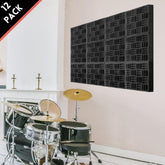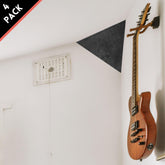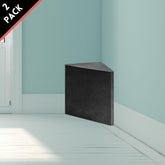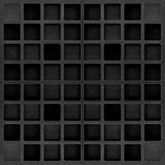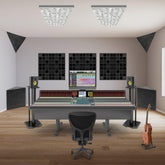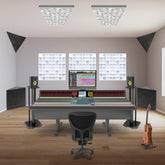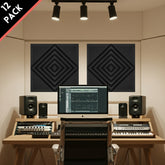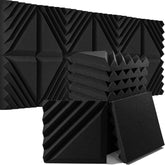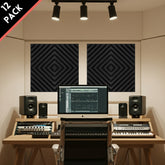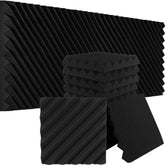How to Choose the Right Acoustic Panels for Your Room: An Expert’s Guide
How to Choose the Right Acoustic Panels for Your Room: An Expert’s Guide

1. Introduction: Understanding the Importance of Acoustic Panels
As a beginner stepping into the world of sound management, you might find yourself wondering why acoustic panels are essential. Acoustic panels play a pivotal role in controlling the sound quality of a room by reducing unwanted reflections and echoes, enhancing sound clarity and overall acoustic performance.
2. Acoustic Panels: The Science Behind the Sound
The core function of acoustic panels is sound absorption. When sound waves hit these panels, they transform into heat energy, which reduces their impact and minimizes the sound reflections in the room. It's this property that makes them a vital tool for improving room acoustics.
3. Factors to Consider When Choosing Acoustic Panels
When it comes to choosing the right acoustic panels for your room, various factors come into play. These include the size of your room, the purpose of the room (recording studio, home theater, etc.), the existing materials and surfaces in the room, and your aesthetic preferences.
4. Bass Traps and Their Role in Acoustics
While acoustic panels are effective for absorbing mid to high-frequency sounds, bass traps are necessary for controlling lower frequencies or 'bass' sounds. Since bass frequencies have longer wavelengths, they tend to bounce around more and create a boomy sound environment if not adequately controlled.
5. The Acoustic Diffuser: Balancing the Acoustics
An acoustic diffuser is another important component in room acoustics. It works by scattering the sound waves, preventing too much absorption, and maintaining a sense of 'liveliness' in the room. Without a diffuser, a room can become too 'dead' or non-reverberant, which might not be suitable for all audio purposes.
6. Navigating the Selection Process: Practical Tips
Now that you have a fundamental understanding of acoustic panels, bass traps, and diffusers, here are some practical tips to guide you. First, assess your room's acoustics. Identify areas where sound reflections are problematic. Then, choose acoustic panels that fit your room size and aesthetic. Consider bass traps for rooms with bass-heavy sound systems. Finally, use diffusers to prevent excessive absorption and maintain a balanced sound environment.
In conclusion, choosing the right acoustic panels for your room doesn't have to be a daunting task. With a basic understanding of their function, an assessment of your room's needs, and practical selection tips, you're well on your way to improving your room's acoustics.
ABOUT AUTHOR
House Live Engineer of Free Bird, a live house with the history of South Korea's indie music scene.
Single album/Regular album/Live recording, Mixing and Mastering experience of various rock and jazz musicians

